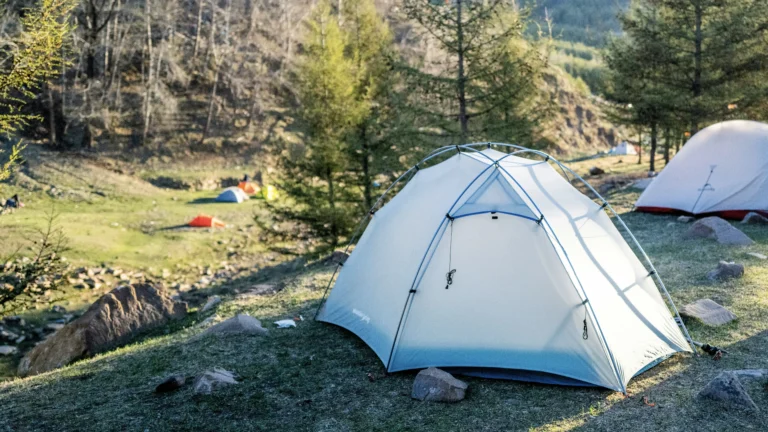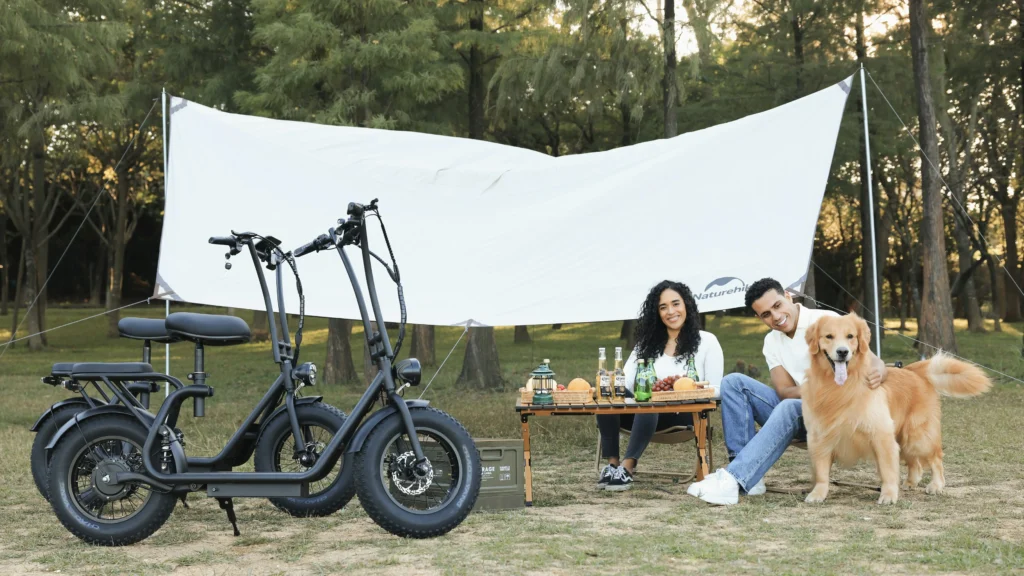Why Camping Beats Hotels - Affordable Nature Escapes

Why Camping Beats Hotels The Rise of Camping Over Hotels: How Nature and Affordability Are Changing Travel Trends
Why Camping Beats Hotels: The Shift from Hotels to Camping
In recent years, travelers have increasingly chosen camping over traditional hotel stays. The reasons are clear: camping offers lower costs, a deeper connection to nature, and a more immersive travel experience. With rising hotel prices and the growing desire for sustainable travel, camping has become the preferred option for many adventurers.
One standout example is Viana Camp, a medieval-style campsite that combines historical charm with modern outdoor comforts. This blog explores why camping is surging in popularity, the benefits of choosing campsites like Viana Camp, and how this trend is reshaping the travel industry.
Table of Contents
-
Why People Are Choosing Camping Over Hotels
-
Cost Savings
-
Connection to Nature
-
Health Benefits
-
Sustainability
-
-
The Unique Appeal of Medieval-Style Campsites
-
What Makes Viana Camp Special?
-
Historical Immersion
-
Modern Amenities in a Rustic Setting
-
-
The Economic Advantage of Camping
-
Comparing Costs: Camping vs. Hotels
-
Budget-Friendly Travel Tips
-
-
Health and Wellness Benefits of Camping
-
Mental Health Improvements
-
Physical Activity and Fresh Air
-
-
Sustainability: Camping as Eco-Friendly Travel
-
Reduced Carbon Footprint
-
Supporting Local Ecosystems
-
-
Viana Camp: A Case Study in Medieval Camping
-
Location and Setting
-
Accommodation Options
-
Activities and Experiences
-
-
How to Plan Your First Camping Trip
-
Essential Gear
-
Booking Tips
-
Safety Considerations
-
-
The Future of Travel: Will Camping Dominate?
-
Industry Trends
-
Innovations in Camping
-
-
Conclusion: Why You Should Try Camping

1. Why People Are Choosing Camping Over Hotels
Cost Savings
Hotels can be expensive, especially in popular tourist destinations. A single night in a mid-range hotel can cost $100–$300, while camping often ranges from $10–$50 per night. Families and budget travelers find camping a much more affordable way to explore new places.
-
Example: A week-long hotel stay could cost $1,400+, whereas camping for the same duration might only be $350.
-
Viana Camp offers medieval-style tents at a fraction of hotel prices, making it an attractive option for history lovers and budget-conscious travelers.
Connection to Nature
Modern life is dominated by screens and urban environments. Camping allows people to disconnect from technology and reconnect with the natural world.
-
Studies show that spending time in nature reduces stress and improves mood.
-
Unlike hotels, campsites like Viana Camp provide direct access to forests, rivers, and open skies.
Health Benefits
Camping encourages physical activity—hiking, swimming, and exploring—which improves cardiovascular health. Fresh air and natural sunlight also boost vitamin D levels and immune function.
Sustainability
Hotels consume vast amounts of energy (air conditioning, laundry, lighting). Camping, especially in eco-friendly sites like Viana Camp, has a much lower environmental impact.
-
Many campsites use solar power and composting toilets.
-
Campers tend to leave smaller carbon footprints than hotel guests.
2. The Unique Appeal of Medieval-Style Campsites
What Makes Viana Camp Special?
Viana Camp is not just a place to sleep—it’s an experience. Designed to resemble a medieval village, it offers:
-
Handcrafted wooden cabins
-
Authentic medieval-style tents
-
Bonfire gatherings and storytelling
-
Archery and historical reenactments
Historical Immersion
Unlike generic hotel rooms, Viana Camp transports guests back in time. Visitors can:
-
Wear medieval-style clothing
-
Participate in traditional crafts
-
Enjoy feasts inspired by historical recipes
Modern Amenities in a Rustic Setting
Despite its old-world charm, Viana Camp provides:
-
Comfortable beds
-
Clean showers and toilets
-
On-site dining options
3. The Economic Advantage of Camping
Comparing Costs: Camping vs. Hotels
| Expense | Hotel Stay (7 Nights) | Camping (7 Nights) |
|---|---|---|
| Accommodation | $1,400+ | $350 |
| Food | $500 (restaurants) | $200 (self-cooked) |
| Activities | $300 (tours, etc.) | $100 (free hikes) |
| Total | $2,200+ | $650 |
Budget-Friendly Travel Tips
-
Cook your own meals (campfires or portable stoves).
-
Use reusable gear (saves money long-term).
-
Travel offseason (lower campsite rates).
- Why Camping Beats Hotels
4. Health and Wellness Benefits of Camping
Mental Health Improvements
-
Reduced anxiety (nature lowers cortisol levels).
-
Better sleep (natural light regulates circadian rhythm).
Physical Benefits
-
More movement (hiking, setting up tents).
-
Fresh air improves lung function.
5. Sustainability: Camping as Eco-Friendly Travel
Reduced Carbon Footprint
-
No energy-intensive hotel operations.
-
Less food waste (campers cook what they need).
Supporting Local Ecosystems
-
Many campsites, like Viana Camp, preserve natural landscapes.
-
Campers often follow Leave No Trace principles.
6. Viana Camp: A Case Study in Medieval Camping
Location and Setting
Nestled in a forest near historic ruins, Viana Camp blends nature with history.
Accommodation Options
-
Medieval tents (with cozy bedding).
-
Wooden lodges (for those who want more comfort).
Activities and Experiences
-
Archery lessons
-
Guided historical walks
-
Nighttime storytelling by firelight
7. How to Plan Your First Camping Trip
Essential Gear
-
Tent (weather-appropriate).
-
Sleeping bag & pad.
-
Portable stove.
Booking Tips
-
Reserve early (popular sites like Viana Camp fill fast).
-
Check weather forecasts.
Safety Considerations
-
Know wildlife precautions.
-
Bring a first-aid kit.
8. The Future of Travel: Will Camping Dominate?
Industry Trends
-
Glamping (luxury camping) is growing.
-
More themed campsites (like Viana Camp) are emerging.
Innovations in Camping
-
Solar-powered campsites.
-
Eco-friendly gear advancements.
9. Conclusion: Why You Should Try Camping
Camping offers affordability, adventure, and a break from modern stress. Sites like Viana Campprove that camping doesn’t mean sacrificing comfort—it means enhancing your travel experience with history, nature, and community.
Ready to ditch hotels? Pack your tent and embrace the camping revolution!
Photo by Jianyang Liu

